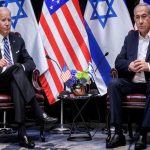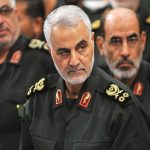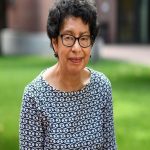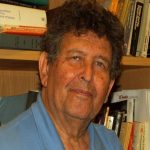Faraan: Some time ago, a book entitled “The professors” (The 101 Most Dangerous Academics in America) written by “David Horowitz” was published in the United States. The subject of this book is the introduction of one hundred and one university professors whose crime was to speak about the Holocaust and the Jews in their classrooms and books. In addition to publishing this book, professors at other universities have been warned not to use their work because these people have crossed the red line. In general, when freedom is unlimited, it creates problems that will ultimately limit it. The following text introduces “Professor Lisa Anderson”, one of the one hundred and one professors discussed by the author of the book.
Professor Lisa Anderson
Columbia University
— Professor of political science, Columbia University
— Dean of Columbia’s school of International and Public Affairs
— Regards America’s wars of liberation in
Afghanistan and Iraq as “an assault on the entire region.”
A faculty member at Columbia University since 1986, political science Professor Lisa Anderson is the former president of the Middle East Studies Association. Described in her university biography as “one of this country’s most eminent scholars of the Middle East and North Africa,” Professor Anderson is the author of just one book, The State and Social Transformation in Tunisia and Libya, 1830–1980. She currently serves as the dean of Columbia’s School of International and Public Affairs and co-chair of Human Rights/Middle East. She is also a member of the Council on Foreign Relations, the Carnegie Council on Ethics, and the Social Science Research Council.
Professor Anderson’s most recent achievement was raising $4 million, almost entirely from Arab sources, for an “Edward Said Chair in Middle Eastern Studies.” Though Said was not a scholar of Islam or the Middle East, but a literary scholar and celebrated anti-Israel polemicist, Anderson found nothing peculiar in naming the chair after him. She kept the sources of the chair’s funding secret for as long as possible, despite public criticism and even though New York State Law requires that such information be reported when it involves foreign funds. To occupy the chair, she selected Professor Rashid Khalidi, a longtime supporter of Yasser Arafat and one-time activist with the Palestine Liberation Organization, who depicts Israel as a “racist” nation that imposes “apartheid” on Palestinians. Professor Anderson reserved the chair for Khalidi until he could extricate himself from his position at the University of Chicago. She could not “honestly think of a better person,” she said, “to recruit to Columbia.”
Professor Anderson was also instrumental in helping Joseph Massad, whom she had served as a PhD advisor, to secure a teaching post at Columbia. Massad believes that the “Jewish state is a racist state that does not have the right to exist,” that Palestinian suicide bombers are noble “anti-colonial resistors,” and that there are “stark” similarities between the plight of World War II-era Jews in Nazi concentration camps and contemporary Palestinian terrorists in Israeli prisons.
During Professor Anderson’s tenure as dean, the School of International and Political Affairs has held numerous events condemning the state of Israel. In September 2002, for instance, the School of International and Public Affairs co-sponsored an African Studies Institute seminar called “South African Conversation on Israel and Palestine, which was designed to liken Israel’s current social structure to the system of racial apartheid, even though the Arab citizens of Israel (more than a million strong) enjoy more rights than the citizens of any Arab state.
Professor Anderson is a fierce critic not only of Israel, but also of the United States. She views the 9/11 attacks as the Muslim world’s response to “the fact of American political power in the world, and the fact of inequitable distribution of power within the United States.” When writing about the “war on terror,” Professor Anderson places those words in sneer quotes to convey her belief that the term is nothing more than a pretext for American empire-building by means of serial invasions. Casting the U.S. as an unprovoked aggressor in this war, she characterizes the American military operations in Afghanistan and Iraq as an “assault on the entire region” and an attempt “to rewrite the map of the entire area.”
Research: Hugh Fitzgerald17










